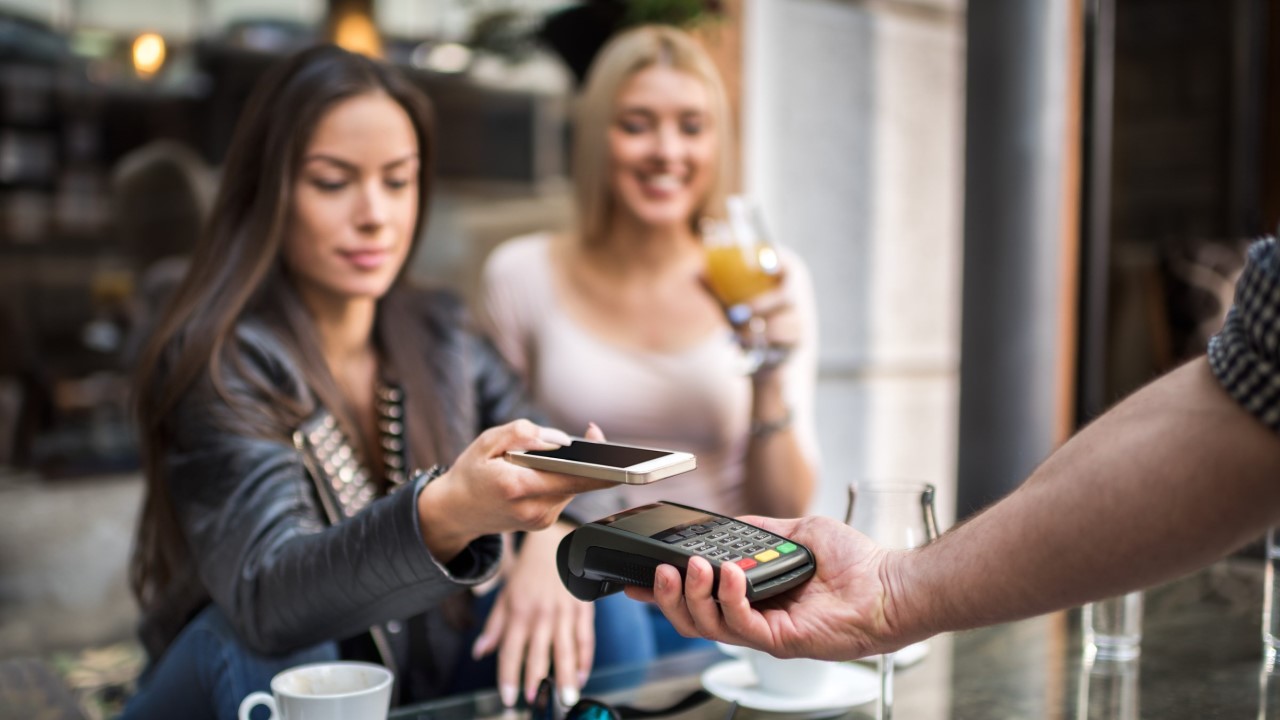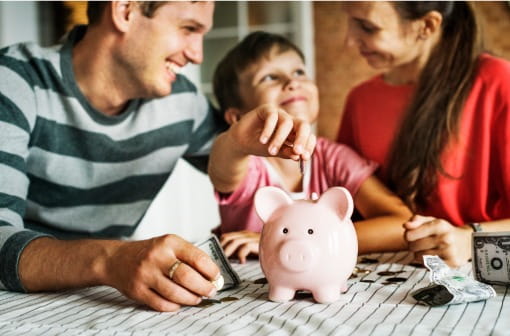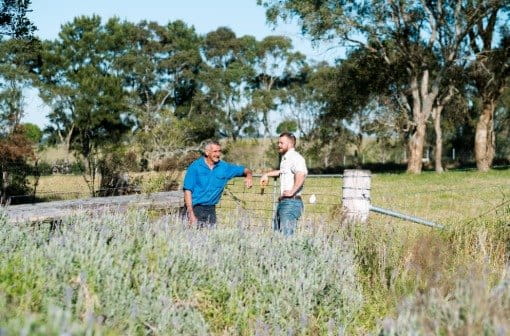“Spending money on others, on things that buy us back time or things that remove negative moments from our day can be the key to happiness.”—Assistant Professor Ashley Whillans, Harvard Business School.
Key points
- Money and happiness is a complicated relationship.
- The Australian Unity Wellbeing Index shows how a person's wellbeing broadly increases as their pay increases.
- Money doesn't always equal happiness, but it can help you find it.
How often have you been told that “money doesn’t buy happiness?” It’s a familiar refrain, but research – and the experts we interviewed for this article – say there is a clear relationship between being financially independent and increased wellbeing.
So, how much money do you need to buy a little happiness? Where should we be shopping for a happiness boost? And why aren’t all rich people happy? Here we answer these questions and more.

Money does impact happiness: the research
According to the Australian Unity Wellbeing Index – created in partnership with Deakin University to measure the wellbeing and life satisfaction of Australian adults – a person’s wellbeing broadly increases as their pay packet gets bigger. The relationship is especially strong for those on low incomes, with small increases in income producing a noticeable increase in happiness for most people.
Once household incomes hit six figures, though, the link between money and wellbeing tapers off. For example, to shift wellbeing by one point for those in households earning $15,000–$30,000 annually, an extra $18,750 of income is required, whereas for households earning $150,000–$250,000 an extra $147,000 is required.
So why have we always been told money doesn’t buy happiness if there is indeed a relationship between the two? Well, when we buy something new – whether it’s the latest phone, car or pair of jeans – the happiness fades quickly as that bright and shiny thing becomes our new normal. Instead, the power of money is in its ability to help us pursue the things we need to be happier and cope with the more difficult things in life.
Money and happiness: a complicated relationship
While a general relationship exists between money and happiness, the link is both complex and at times perplexing.
For example, the research shows that couples with a total household income of $15,000–$30,000 have higher wellbeing than someone who lives alone with the same household income. Despite the couple sharing the same amount of money that the single person has all to themselves, it seems that having a partner is a more powerful influence on happiness than money.
Professor Gigi Foster, Professor in the School of Economics at UNSW, says the most famous contribution towards understanding the relationship between money and happiness is the “Easterlin paradox”. This so-called paradox describes how, within a country, richer people are generally happier than poorer people, but richer countries are not happier overall compared to poorer countries.
Gigi says that while cultural factors come into play here, it shows that part of the link between money and happiness is relative – it’s more about how rich we are compared to the people around us. But while this may feed into a feeling of satisfaction, feeling “rich” isn’t the main reason why happiness and money are linked.
It’s not really about money, it’s about how you use it. “Income allows us to buy things and experiences that promote our happiness,” says Gigi.
Money doesn’t equal happiness (but it can help you find it)
So how can we use money to promote happiness? Some ways that using money can ultimately make you feel good include:
- Being able to buy good food for your family.
- Having enough money to finance an international holiday so you can teach your children about other cultures and create lifelong memories.
- Investing in your health and positive habits.
- Enjoying a dinner out or going to watch an event with friends, which creates bonding experiences.
To extract the most happiness out of your income, Gigi says you have to be quite astute. “You have to know what makes you happy and then use money to promote those things.”
Why there may be no joy in being “rich”
Ashley Whillans, Assistant Professor at Harvard Business School in Negotiations, Organizations, and Markets, and author of Time Smart: How to Reclaim Your Time and Live a Happier Life, agrees that more money can mean more happiness – but warns against the idea of chasing happiness by striving to join the rich list.
Indeed, those with higher levels of income can be less happy, she says, since they are forgoing time and focusing too much on finances. They end up comparing themselves to people with more money, and the cycle continues. Instead, to find more happiness, we should focus on how we are spending both our money and time, says Ashley.
“Spending money on others, on things that buy us back time or things that remove negative moments from our day can be the key to happiness,” says Ashley. By freeing up time in our day we can spend moments doing the things that bring us joy – exercise, serving our communities and mindful activities, for example.
So if you hate housework, it may be time to find money in your budget for a house cleaner. Hate cooking? Allocate more of your budget to pre-prepared meals or takeaway.
It also helps to get honest with yourself about your relationship with time and money. According to the data, “people who are time-focused tend to be happier when compared with those who are more focused on money”, says Ashley. But there’s a balance to be achieved, of course. Focusing completely on time will leave you with less money – and, as we now know, less money is generally associated with less happiness.
Unfortunately, there’s no set formula for working out how to balance your focus on money versus time. Ashley instead recommends understanding what you tend to focus on and making more intentional and deliberate decisions around money and time.
To understand whether you tend towards a money mindset or a time mindset, Ashley suggests asking yourself some questions:
- Would you prefer to cash in your holidays or take the paid holiday?
- Would you choose a more costly direct flight or the cheaper flight that adds hours to your travel time?
- Would you give up a few hours to research a deal and potentially save $20?
- Would you go to the close petrol station or drive around to find cheaper petrol?
No matter your budget, thinking more about the link between time and money will likely help you see the direct impact of money on your happiness. And once you have this knowledge, you have the power to change and achieve the balance that brings you the most happiness.
Ashley says you don’t need to make major changes. “Small changes around the margins is enough to promote meaningful difference.” What small change can you make today?
Disclaimer: Information provided in this article is of a general nature. Australian Unity accepts no responsibility for the accuracy of any of the opinions, advice, representations or information contained in this publication. Readers should rely on their own advice and enquiries in making decisions affecting their own health, wellbeing or interest. Interviewee names and titles were accurate at the time of writing.

.jpg)
